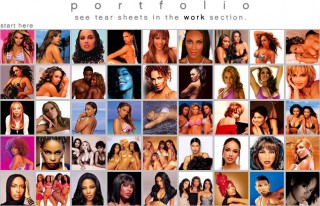 You can really learn a lot from that guy: Glenn Feron РThe art of retouching. Amazing. Thanks to Richard for the hint.
You can really learn a lot from that guy: Glenn Feron – The art of retouching. Amazing. Thanks to Richard for the hint.
News
Rich remoteness
Finally i’m continuing the semester project, Here/There, glad to collabrate with Richard. Some thoughts, straight from here and there in my mind:
– close the gap between remote places with creative design
– communication often is too impersonal, cold, unemotional
– look at what every human being been has learned from childhood and is familiar with:
– remembering spatial information (surrounding, storage places)
– interaction with others (gestures, body language)
– burning: aura, magic, telepathy, imagination
– gestures and body language as subliminal communication
– clothes as an expression of style and social status
– camouflage – attention
– local adaption – global attention
– überall und nirgends („irgendwo/an einem unbekannten Ort sein; häufig den Ort wechseln“)
– nah und fern
– record movement of air in one place and send it to another
– shoot airwaves over distances
New portfolio online
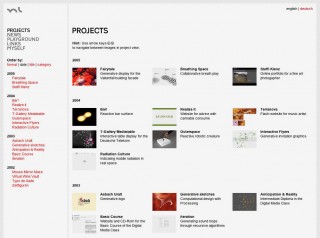 If you were ever wondering, what I was doing during the last weeks and months, here’s the result: my new portfolio website is finally online.
If you were ever wondering, what I was doing during the last weeks and months, here’s the result: my new portfolio website is finally online.
Panta rei (everythings flows), like the Greek say. So the news are now going to be available at www.markuslerner.com/news.
Blog actually sounded like somebody choked on some bad stuff, so the new stuff will be continued from here: NEWS. Nothing more and nothing less. No homage to another hype. Something most people will understand. And even if they won’t understand the content, they at least get the picture.
Computational Design
Thinking about the topic of my diploma next year and what I’m doing or trying to, I read a discussion about Computational Design at www.generatorx.no.As more and more of us begin to call themselves Computational Designers, I think it makes sense to consider the actual definition again. In the broadest sense, Computational Design can be put as „the design of products and processes through the use of digital means“. But it is by far more than just doing something with the help of digital media, i.e. using some fancy software. The point is to take the challenge of getting down to the real capabilities of digital media.
Nobody else could draw a better picture of the scenario than Prof. Dr. Mihai Nadin, who mainly shaped the definition. If you have the time, there are two great essays by Nadin on Computational Design and design in general, highly recommended for reading for anybody who works in the design field or encounters it:
1. Computational Design: Design in the Age of a Knowledge Society
Nadin had founded the worlds first Computational Design Programme at the University of Wuppertal and did a lot of research on anticipation, the topic of my intermediate diploma.
Gotham typeface
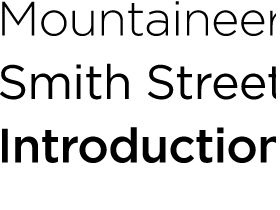 After a long time, the name of a great new typeface I used to catch sight of quite often, was wispered to me: Gotham, by the foundry Hoefler & Frere-Jones. EasyJet uses it for the headlines in it flight magazine, for example, and it seems to be used quite often especially in the UK area.
After a long time, the name of a great new typeface I used to catch sight of quite often, was wispered to me: Gotham, by the foundry Hoefler & Frere-Jones. EasyJet uses it for the headlines in it flight magazine, for example, and it seems to be used quite often especially in the UK area.
Thanks a lot to the living identifont-engine Christoph.
RE/ACT media art festival, Heidelberg
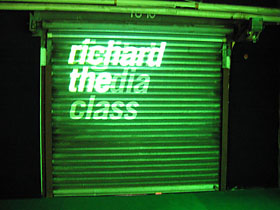 The 2nd international student media art festival RE/ACT took place in the beautiful town of Heidelberg (Though we didn’t get to see much of the place itself. ^^).
The 2nd international student media art festival RE/ACT took place in the beautiful town of Heidelberg (Though we didn’t get to see much of the place itself. ^^).
Among others, the exhibition showed works from my colleagues in the Digital Media Class. Outerspace by Andre and me was also there.
The photo set also features some pictures from the RFID workshop by Matt at the ZKM, the Centre for media and art in Karlsruhe and my colleagues hanging around there.
Vattenfall Media Facade, Berlin
 Three artists were asked to create a new computational animation for the Vattenfall media facade in Chausseestr. 23.
Three artists were asked to create a new computational animation for the Vattenfall media facade in Chausseestr. 23.
The team of Andre Stubbe and me were one of them. Our piece called Fairytale won the 2nd prize. It will be screened on the facade for several months starting from 27 August 2005 and again from March 2006 til August 2006.
The opening took place during the Lange Nacht der Museen on 27 August 2005 in Berlin.
Outerspace at Artbots, Dublin
 Outerspace had taken Andre and me to Dublin for Artbots 2005. Four great days of great fun amoung many crazy robots and humans.
Outerspace had taken Andre and me to Dublin for Artbots 2005. Four great days of great fun amoung many crazy robots and humans.
Back in Berlin
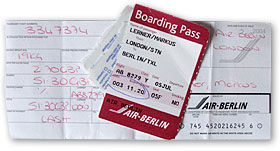 After living in London for half a year i finally returned to Berlin. Six intense months of great valuable experiences, but for some reasons i’m glad to be in Germany again: the money, of course, and the speed of living. London is really busy, you feel a constant pressure that you need to be productive.
After living in London for half a year i finally returned to Berlin. Six intense months of great valuable experiences, but for some reasons i’m glad to be in Germany again: the money, of course, and the speed of living. London is really busy, you feel a constant pressure that you need to be productive.
LCC Final Show
 Next week: The Final Show of Graphic and Media Design at London College of Communication.
Next week: The Final Show of Graphic and Media Design at London College of Communication.
London College of Communication
Interactive Design
Open to public 20–25 June
Weekdays 10am–8pm, Saturday 10am–4pm
Private View: Tuesday 21st June 6pm–9pm






























